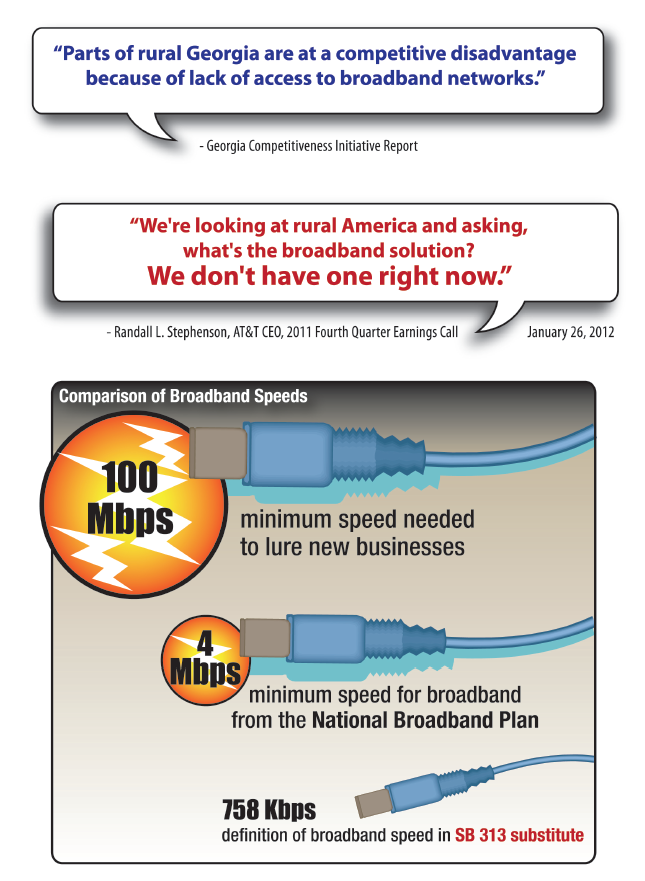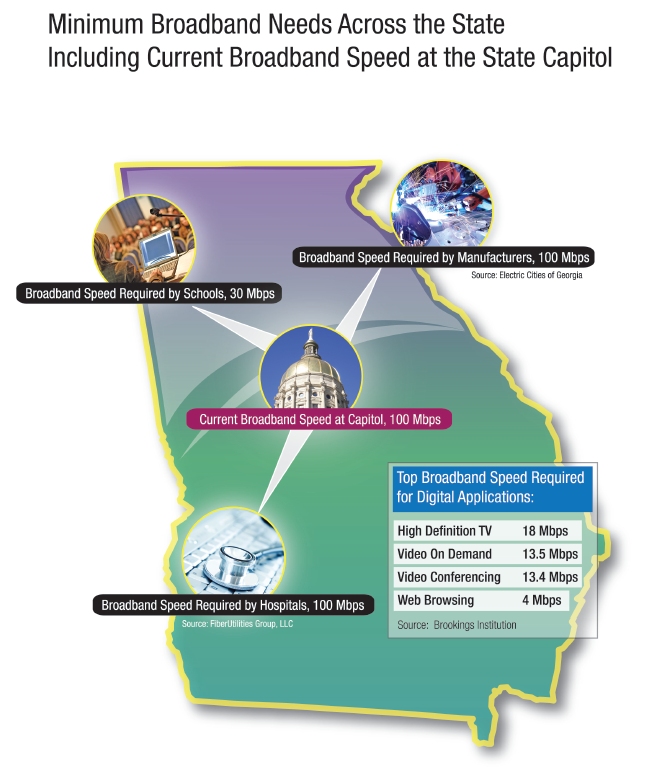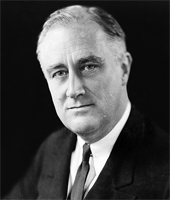
Fast, affordable Internet access for all.

In past reporting, we have briefly discussed Pend Orielle PUD’s efforts at filling the broadband service gap in rural areas. People living in rural areas, while possibly needing connectivity more than urbanites, are often left to fend for themselves. In this case, the community was largely passed over by the private sector but took up the challenge to do it themselves. In addition to implementing a pilot program in 2011, they attempted to restore their right to make their own decisions about broadband.
In a commentary posted on the Pend Orielle PUD website, Commissioner Dan Peterson describes the agency’s commitment to their first priority, providing reliable electricity, and how expansion of their fiber network will improve the process of delivery. Yes, there are risks of building a community fiber-optic network, notes Peterson, but is has been done, done well, and will enhance the ability to fulfill that first priority. Additionally, the Commissioner notes that broadband access is something the people of Pend Orielle County need to stay competitive and gain any possible edge:
It increases educational opportunities, economic vitality, property values, and jobs. Our rural county will leap forward in this information age with state-of-the-art infrastructure. Without this gift, such progress is otherwise impossible.
The Pend Orielle PUD received stimulus funds, which it used to expand the network, but are considering the fiscal future of the network and current and future customers. Peterson and the PUD sought legislative changes, SB 6675, that would give the PUD the authority to offer retail services on its network, currently a no-no. In his commentary, Peterson attempted to allay the fears of those he correctly anticipated would be opposed to such authority – the potential competition.
Chelan PUD is asking the people of their rural community whether they “love” or “just like” their beleaguered and pioneering fiber-optic network. At a series of public input meetings to be held across the county over the next month, residents will have the chance to hear opinions from business, economic, and marketing consultants, as well as express their devotion, or lack thereof, to the network. The future of the network is in question and the Chelan PUD needs to hear from its owners.
At the first meeting, on February 28th, most residents of Chelan County said that having a locally owned and controlled network available to them was a priority. Consultants hired by the PUD said the fiber-optic network could be self-sustaining in the long term with changes in business planning. Recommendations included writing off internal debt, more aggressive marketing efforts to existing and ready locations, and collaborating with ISPs to obtain more subscribers in the open access network. Yes, the PUD Fiber-optic network has had its problems, including high installation costs due to the landscape and lack of conduit, changes in PUD leadership, and incompatible existing residential technology. Nevertheless, experts and the local community appear patient and cautiously optimistic. More meetings will follow; the next is scheduled for March 19th.
Providers lease from the PUD (state law prohibits them from competing directly with retail services) and proceeds from wholesale electricity sales have allowed the network to continue expanding. As we have reported in the past, the PUD is an open access network and while it has not been able to pay down its debt, and has had some difficulties, the PUD network has recognized value in the community, as evidenced at this first meeting. It certainly beats not having access to the essential infrastructure necessary to succeed in the modern economy.
The National Rural Assembly, an advocate for America's hinterland, continues to track harmful legislation moving through the Kentucky Legislature. The assembly's Rural Broadband Policy Group in February publicized Senate Bill 135which eliminates the "carrier of last resort" requirement that big telcos provide basic phone basic and 911 service in rural Kentucky (Feb. press release on SB135). The bill's sponsor Senator Paul Hornback attempted to distance the negative publicity of SB 135 by crafting a new Senate Bill 12 with similar language. SB 12 cleared a Senate panel today to the dismay of opponents.
After June 30, 2013, AT&T and other electing "Incumbent Local Exchange Carriers" (ILECs) would no longer be required to provide basic landline telephone service to all persons in a service area, and rural Kentuckians would no longer be assured of access to reliable basic phone service, including 911-emergency service. This bill would be especially harmful for rural people, because they are more likely to be in areas phone companies would decide not to serve, if given the choice. If the Kentucky bill succeeds, we expect major telephone companies to try similar bills in other states. The Rural Broadband Policy Group thinks that both bills need to be killed. After June 30, 2013, AT&T and other electing "Incumbent Local Exchange Carriers" (ILECs) would no longer be required to provide basic landline telephone service to all persons in a service area, and rural Kentuckians would no longer be assured of access to reliable basic phone service, including 911-emergency service. This bill would be especially harmful for rural people, because they are more likely to be in areas phone companies would decide not to serve, if given the choice. If the Kentucky bill succeeds, we expect major telephone companies to try similar bills in other states.
The Rural Broadband Policy Group thinks that both bills need to be killed. Possible repercussions:
 Note, that AT&T was originally trying to define broadband at the absurd 200kbps level but a substitute bill would have bumped it up to a still-too-low 768kbps, which is referenced above.
The other flyer that apparently made a difference with legislators is here:
Note, that AT&T was originally trying to define broadband at the absurd 200kbps level but a substitute bill would have bumped it up to a still-too-low 768kbps, which is referenced above.
The other flyer that apparently made a difference with legislators is here:
 Rememeber that elected officials often think of broadband in binary terms. You have it or you don't. In their mind, if you have options aside from dial-up, the problem is solved. These are people that often do not know what is needed to attract economic development, work efficiently from home, or successfully compete remote education courses.
Graphics that explain why we need next-generation networks rather than simply expanding last-century DSL can be remarkably helpful.
Rememeber that elected officials often think of broadband in binary terms. You have it or you don't. In their mind, if you have options aside from dial-up, the problem is solved. These are people that often do not know what is needed to attract economic development, work efficiently from home, or successfully compete remote education courses.
Graphics that explain why we need next-generation networks rather than simply expanding last-century DSL can be remarkably helpful.Today, the Institute for Local Self-Reliance, which advocates for community broadband initiatives, is tracking more than 60 municipal governments that have built or are building successful fiber networks, just as they created electric systems during the 20th century. In Chattanooga, Tennessee, for example, the city’s publicly owned electric company provides fast, affordable and reliable fiber Internet access. Some businesses based in Knoxville -- 100 miles to the northeast -- are adding jobs in Chattanooga, where connectivity can cost an eighth as much.Though I encourage readers to read the full column, I love the conclusion:

Right now, state legislatures -- where the incumbents wield great power -- are keeping towns and cities in the U.S. from making their own choices about their communications networks. Meanwhile, municipalities, cooperatives and small independent companies are practically the only entities building globally competitive networks these days. Both AT&T and Verizon have ceased the expansion of next-generation fiber installations across the U.S., and the cable companies’ services greatly favor downloads over uploads. Congress needs to intervene. One way it could help is by preempting state laws that erect barriers to the ability of local jurisdictions to provide communications services to their citizens. Running for president in 1932, Franklin D. Roosevelt emphasized the right of communities to provide their own electricity. “I might call the right of the people to own and operate their own utility a birch rod in the cupboard,” he said, “to be taken out and used only when the child gets beyond the point where more scolding does any good.” It’s time to take out that birch rod.
Erik Poulsen, government relations director at Washington Public Utility District Association, said PUDs have used the wholesale authority they were granted in 2000, building 4,500 miles of fiber-optic cable, investing $300 million in infrastructure and joining with 150 retail providers.
The other is rural access lines; we have been apprehensive on moving, doing anything on rural access lines because the issue here is, do you have a broadband product for rural America? We’ve all been trying to find a broadband solution that was economically viable to get out to rural America, and we’re not finding one to be quite candid. The best opportunity we have is LTE.Whoa! LTE is what you more commonly hear called 4G in mobile phone commercials. The best they can do is eventually build a wireless network that allows a user to transfer just 2GB/month. That is fine for hand-held devices but it does nothing to encourage economic development or allow residents to take advantage of remote education opportunities. But even the CEO admits they are not bullish on LTE as the solution:
[W]e’re looking at rural America and asking, what’s the broadband solution? We don’t have one right now.Some may be wondering about "U-Verse" -- AT&T's super DSL that competes with cable in the wealthy neighborhoods of bigger cities. U-Verse cannot match the capacity or quality of modern cable networks but is better than older DSL technologies. But U-Verse is not coming to a rural community near you. For those who missed the fanfare last year, AT&T's U-Verse build is done. AT&T's lobbyists have probably forgotten to tell Georgia and South Carolina Legislators that the over 20 million AT&T customers without access to U-Verse are not going to get it.